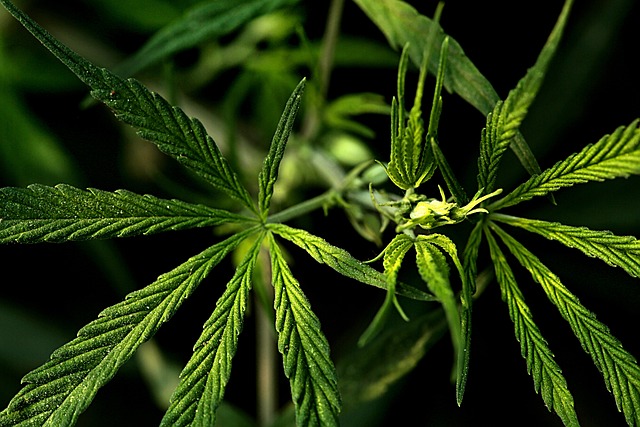THCa Flower Explained: Potency, Benefits, and Uses
In recent years, the cannabis industry has seen a surge in interest surrounding THCa, a non-psychoactive cannabinoid found in raw and live cannabis. As more people seek natural alternatives for health and wellness, understanding the properties and potential of THCa from indacloud.co becomes increasingly relevant. This article explores the potency, benefits, and uses of THCa flower, providing a comprehensive overview for those curious about this intriguing compound.
What is THCa?
THCa, or tetrahydrocannabinolic acid, is a cannabinoid present in the raw cannabis plant. Unlike THC, which is known for its psychoactive effects, THCa does not produce a high. This is because THCa is the precursor to THC and only converts to THC through a process called decarboxylation, which occurs when cannabis is heated.
THCa is abundant in fresh cannabis flowers and is often consumed in its raw form to preserve its unique properties. As research into cannabis continues, THCa is gaining attention for its potential therapeutic benefits without the psychoactive effects associated with THC.
Potency of THCa Flower
The potency of THCa flower is determined by its concentration of THCa, which can vary depending on the strain and cultivation methods. High-THCa strains are often sought after for their potential health benefits, as they offer a rich source of this cannabinoid in its natural form.
When evaluating the potency of THCa flower, it’s important to consider the following factors:
- Strain Selection: Different cannabis strains have varying levels of THCa. Some strains are specifically bred to have higher THCa content.
- Growing Conditions: The environment in which cannabis is grown can impact the THCa levels. Factors such as light, temperature, and soil quality play a role.
- Harvesting and Handling: Proper harvesting and handling techniques help preserve THCa content. Exposure to heat or prolonged storage can lead to decarboxylation, reducing THCa levels.
Benefits of THCa
THCa is gaining recognition for its potential health benefits, which are being explored through ongoing research. Some of the promising benefits include:
- Anti-Inflammatory Properties: Studies suggest that THCa may have anti-inflammatory effects, making it a potential option for managing conditions like arthritis and other inflammatory disorders.
- Neuroprotective Effects: Research indicates that THCa may offer neuroprotective benefits, which could be beneficial for neurodegenerative diseases such as Alzheimer’s and Parkinson’s.
- Anti-Nausea and Appetite Stimulation: THCa has shown potential in reducing nausea and stimulating appetite, which can be helpful for individuals undergoing treatments like chemotherapy.
- Antioxidant Properties: As an antioxidant, THCa may help protect cells from oxidative stress and damage, contributing to overall health and wellness.
While research is still in its early stages, these potential benefits highlight the therapeutic promise of THCa as a natural alternative for various health concerns.
Uses of THCa Flower
THCa flower can be used in several ways, allowing consumers to incorporate it into their wellness routines. Some popular methods of using THCa flower include:
- Juicing: Fresh cannabis leaves and flowers can be juiced to create a nutrient-rich beverage that retains the THCa content. This method is popular among those seeking the health benefits of cannabis without the psychoactive effects.
- Topicals: THCa-infused creams and balms can be applied directly to the skin for localized relief from pain and inflammation.
- Tinctures: THCa tinctures offer a convenient way to consume THCa, allowing for precise dosing and easy incorporation into daily routines.
- Capsules: THCa capsules provide a discreet and controlled method of consumption, making it easy to integrate into a supplement regimen.
These diverse applications make THCa flower a versatile option for those interested in exploring the benefits of cannabis without the psychoactive effects of THC.
Case Studies and Research
Several studies and anecdotal reports have highlighted the potential of THCa in various therapeutic contexts. For instance, a study published in the “British Journal of Pharmacology” explored the anti-inflammatory properties of THCa, suggesting its potential in managing inflammatory conditions. Another study in “Neurotherapeutics” examined the neuroprotective effects of THCa, indicating its promise in neurodegenerative disease management.
Anecdotal evidence from patients using THCa for conditions like chronic pain and nausea further supports its potential benefits. While more research is needed to fully understand the scope of THCa’s therapeutic effects, these findings provide a foundation for future exploration.
Conclusion
THCa flower represents an exciting frontier in the cannabis industry, offering a non-psychoactive alternative with potential health benefits. From its anti-inflammatory and neuroprotective properties to its diverse applications, THCa is gaining recognition as a valuable component of cannabis. As research continues to uncover its full potential, THCa flower may become an increasingly popular choice for those seeking natural wellness solutions.
By understanding the potency, benefits, and uses of THCa flower, consumers can make informed decisions about incorporating this cannabinoid into their health and wellness routines. With ongoing research and growing interest, the future of THCa in the cannabis industry looks promising.
